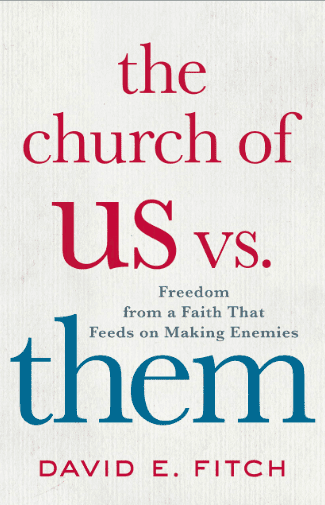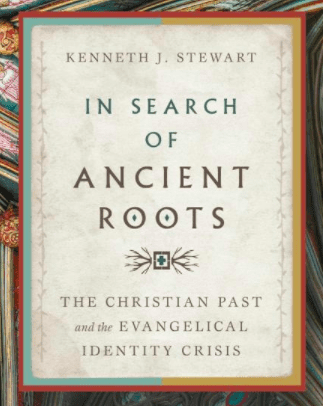Evangelicalism is up for grabs. The evangelical coalition of the 1950s-1990s is behind us, the fissures in the movement are everywhere apparent, and the future of evangelicalism … well, I’m not a prophet. I don’t know what will happen, but I do have a sense of where we are and where we were, and it does not appear to me that the future will be like our past. That concerns me.
 I want to do a series of three posts this week – M W F — on evangelicalism. I will discuss three themes: evangelicalism’s history and need for defense, evangelicalism’s biggest defenders sometimes create new legalisms, and evangelicalism’s core is a four-fold commitment to a coalition for mission.
I want to do a series of three posts this week – M W F — on evangelicalism. I will discuss three themes: evangelicalism’s history and need for defense, evangelicalism’s biggest defenders sometimes create new legalisms, and evangelicalism’s core is a four-fold commitment to a coalition for mission.
Where is evangelicalism headed? What do you think it will look like in 10 years?
Geoffrey Grogan, well-known to UK evangelicals but not known as well on this side of the water, though he’s published plenty and has taught in the USA, recently sent me his newest book: The Faith Once Entrusted to the Saints: Engaging with Issues and Trends in Evangelical Theology. He sent me the manuscript when he was working on it and I couldn’t do it justice, but I was committed to reading it when it came out … and I have now done that. We’re not always on the same page, but we are in the same family.
What Grogan works on is the need for evangelicals to stick to their robust faith, and that means at times having to defend its ideas in the face of shifts and drifts. I agree with him, and so I want to begin on this note: Evangelicalism, in the 1980s and 1990s developed a theological superficiality, and claiming a robust evangelical theology is very important.
If you pointed to one evangelical theologian, who would it be? Who speaks for it best?
There is no simple explanation for evangelicalism’s theological thinnness, but I want to anchor the development of theological superficiality in the essence of evangelicalism as it was practiced in the 1970s-1980s. Here was its core: it was a coalition of evangelicals committed to evangelism, both at home and abroad, and that evangelistic message was what held it together. Well, that’s an overstatement: what held it together was the commitment to evangelism as embodied in major evangelical leaders and institutions: Billy Graham, Wheaton College, Christianity Today, John Stott, and the massive parachurch ministries that were evangelicalism’s “web” and “network.”
But it was right here that something good became a problem: the coalition’s evangelistic message was (sometimes) reduced to God is holy, you are a sinner, God’s grace and holiness are manifest in the atoning cross of Christ, believe in him and you will be saved (and go to heaven) — and you also need to get busy in the evangelistic mission yourself. A populist “who cares about theology?” also developed. Not good.
A reduction of the gospel to these basics as well as decision by many “successful” churches to make that the major theological basis for a local church led to a depreciation of a more robust theology and created a vacuum, a yearning for a more robust theology. I see that vacuum filled today in some ways by seminaries, by pastor conferences, by the rise of the NeoReformed (who sometimes are looking more like NeoFundamentalism), and by progressive evangelicalism’s working with the 20th and 21st Century’s greatest thinkers, not the least of whom would be folks like B.S. Childs and Brueggemann and Moltmann and Pannenberg and NT Wright and Miroslav Volf et al. Exploring these minds leads evangelicalism into new horizons, not all of them comfortable to many.
These explorations have led to books like Grogan’s appearing on a routine basis but I can’t think of any that are theologically alert as Grogan’s. These kinds of books claim a robust (traditional, conservative, classical) evangelical theological heritage that needs to be re-awakened. Which nearly always has meant a claiming of Luther or Calvin or Edwards or Hodge or Warfield or Princeton etc.. The wider themes of evangelical theology are often not even discussed in these claims to return to evangelicalism’s deeper theology, themes that would include Wesleyans and Methodists and some Anabaptists and charismatics and Pentecostals. So Grogan and others often reduce evangelicalism to Reformed evangelicalism, because for such folks that is what evangelicalism was and is and should be.
The younger generation of evangelicalism sometimes just shocks me in thinking that all of evangelicalism has always been nothing but Reformed. Hooey, I was there. Read Don Dayton’s stuff (like Discovering an Evangelical Heritage or The Variety of American Evangelicalism
) and you’ll see a completely different account, and if you read David Bebbington or Mark Noll you’ll also see the Big Tent approach to evangelicalism. Yes, many of its thinkers have been Reformed (though not dogmatically so) and Calvinistic, but Evangelicalism was always a Big Tent and never simply a single confessional approach. All are welcome, that was the theme and the guts of the movement. Some revisionists want those wider approaches, including Arminians and commitments to justice, to disappear by writing a different history, but that revisionism is against the truth. Whether all of us will be in the Big Tent is now officially up for grabs, but many of us will continue to insist that evangelicalism was and could be a coalition of diverse voices, a coalition rooted in the gospel.
In fact, it was the diversity that created our problem: because we were a coalition and not a strict confession, there was at times so much diversity the unity was harder to defend. But I want to urge young theologians to read George Marsden’s history of American fundamentalism (Fundamentalism and American Culture (New Edition)) and then his story of Fuller seminary (Reforming Fundamentalism: Fuller Seminary and the New Evangelicalism
) and to read Don Dayton in order to get the lens wide enough to see the whole story. Any story of American evangelicalism that excludes the Arminians or the charismatics or the social justice warriors is revisionist history. And while you’re at it, read the story of Billy Graham, like this one by Billy Graham, Just As I Am: The Autobiography of Billy Graham
or this one by William Martin, A Prophet with Honor : The Billy Graham Story
.
This lack of attentiveness to the history is what is happening today: more and more are into the defense mode, or call it the recovery mode, or the get-back-to-the-way-things-were mode (only most who are saying that are not going back to the way things were but to some idealized time when things really weren’t the way things were). Remember this: evangelicalism’s coalition was united for evangelistic reasons and the battles today are not about the need for unity in order to tell the story of the gospel. They sound more like divorce fights and friendly fire.
But a book like Grogan’s is important: Grogan probes into the issues that are straining the integrity of one kind — conservative and mostly Reformed — of evangelicalism. In fact, Grogan thinks evangelical theology is authentic [universal, entire Church] Christian theology. So, for him the Church’s solid core is evangelicalism. His issues are these: a conservative approach to the authority of the Bible (which connects his project to Princetonians like Machen and Warfield) and he sees a doctrinal basis in the UCCF statement. The whole book is rooted in these decisions, and the whole book then is a defense of a certain kind of evangelicalism.
Here are the themes he addresses: open theism, penal substitution, the new perspective and justification by faith, inerrancy and infallibility, and hermeneutics. Grogan is kind, and he’s thoughtful, and he’s generous; his approach is uniformly firm and irenic; he is a model of how to do this kind of work. And, his conclusions are unflinchingly traditional conservative evangelicalism — and that’s the evangelicalism he knows and cares about.
But evangelicalism has been and should be bigger than that. The issues he discusses are real and important considerations for many evangelicals, but there are other issues (like the gospel itself) and there are other voices (like Mark Noll and Don Dayton and George Marsden and Roger Olson and Ron Sider).
If evangelicalism doesn’t develop a robust[-er] theology, it will splinter more and become a once vibrant movement. The only way it can develop that theology is to become a coalition again, and that means inviting the whole spectrum to the table.











